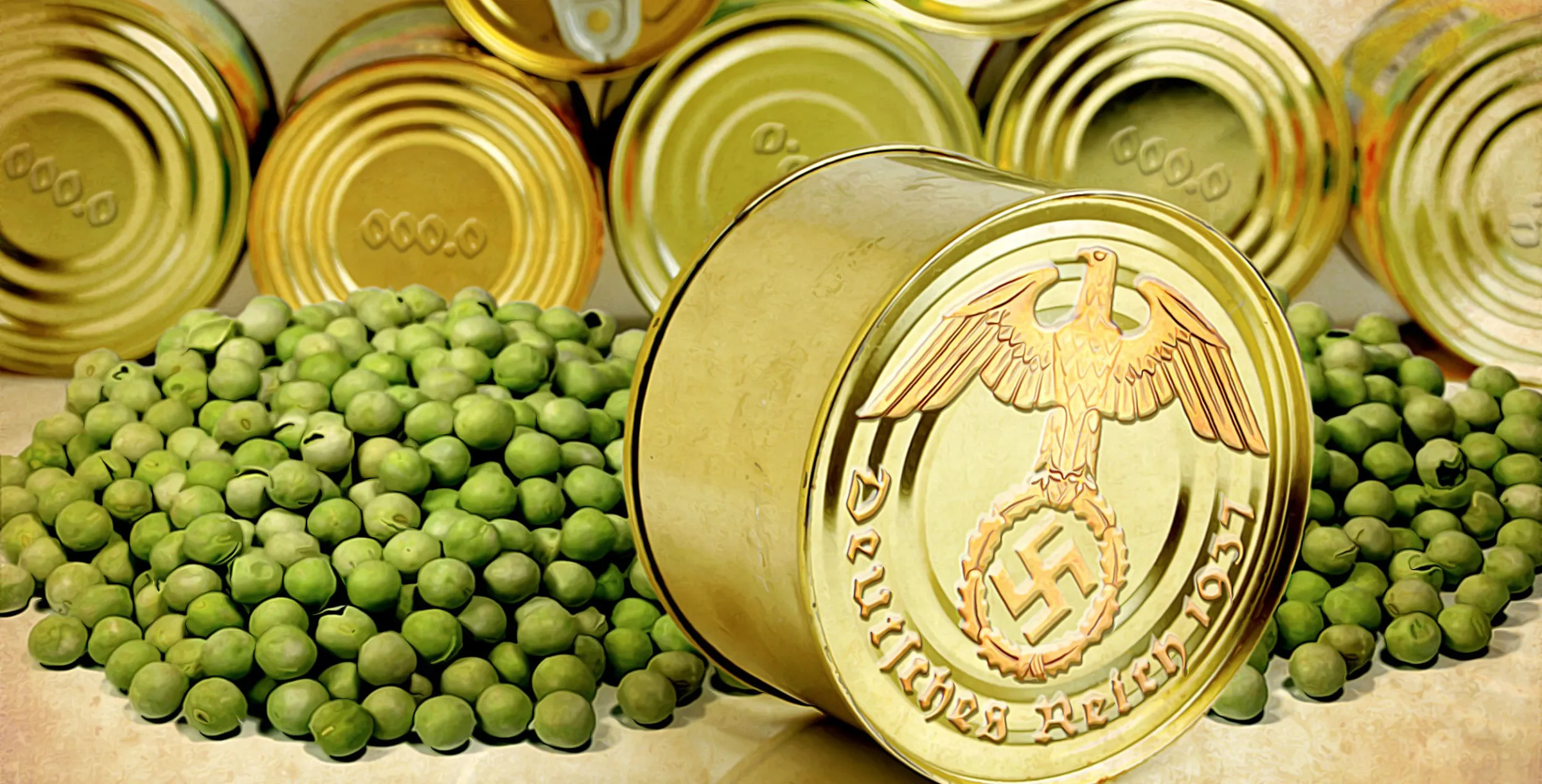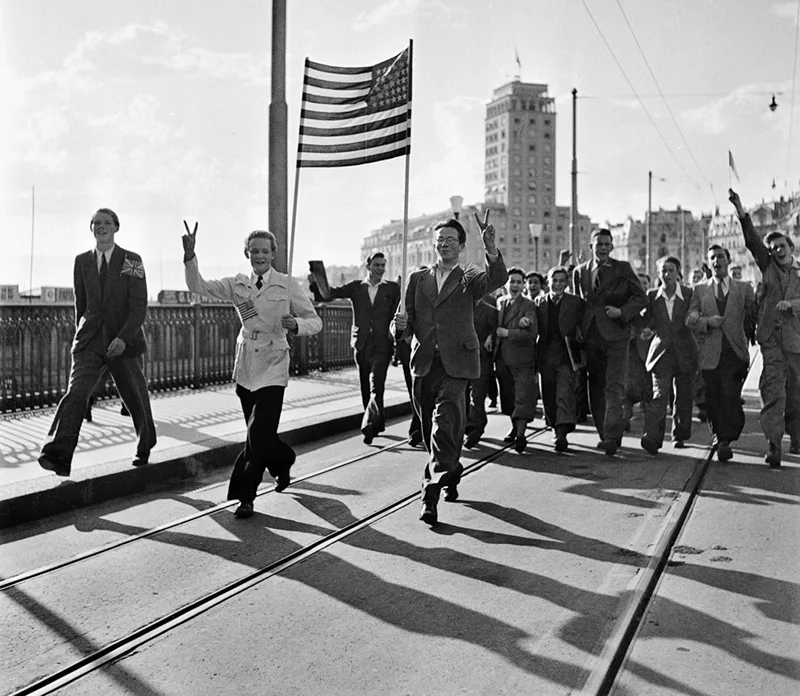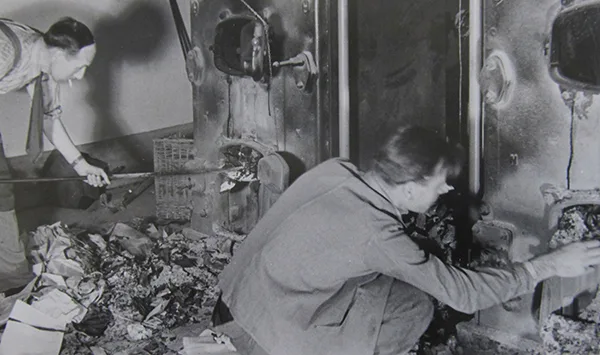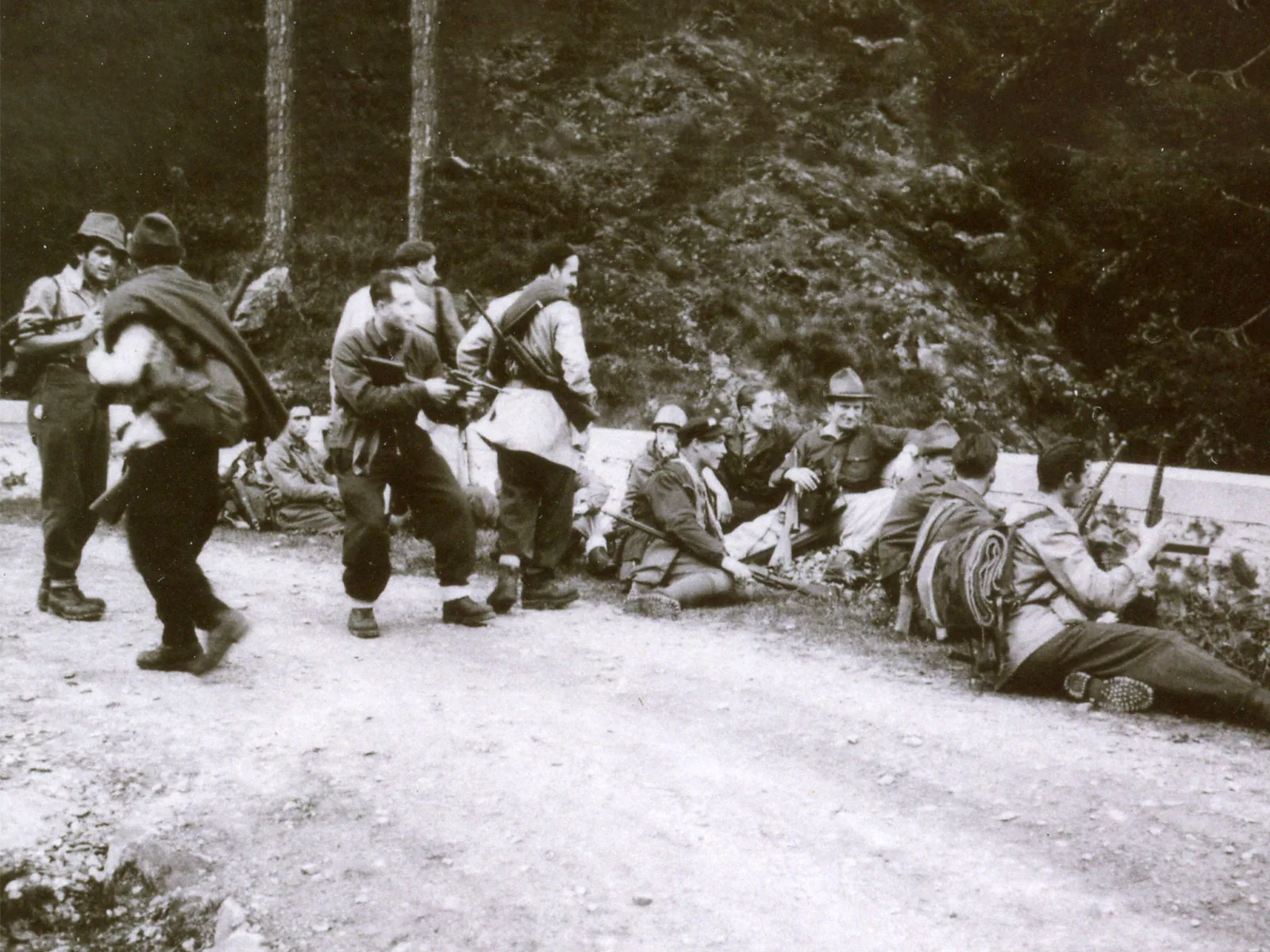
Illustration: Marco Heer
Dried peas instead of gold bars
Shortly before the end of the war, Germany’s Foreign Office moved large quantities of gold from Berlin to the German legation in Bern. Just a few hours after Germany surrendered, the vaults were empty. The fruitless search for the Bern gold hoard began.
At the request of the Political Department, the Federal Council passed a resolution on 8 May 1945:
In the light of recent global military and political events, the time has come when the Federal Council can say with certainty that an official imperial government no longer exists. […] The German missions in Switzerland are to be closed and their official premises and archives are to be given into the custody of a future legal successor to the imperial government, which is no longer recognised.
To enable the relevant officers to carry out this task as smoothly as possible in view of Germany’s surrender, the Federal Prosecutor’s office had issued a secret command the previous evening ordering that the premises of the German legation on Willadingweg and Elfenstrasse in Bern were to be taken over by the Political Department at 2 p.m. on 8 May and sealed under police protection. The subsequent cataloguing of the premises revealed that the German Reich’s final hours in Bern had been used to dispose of large quantities of paper in the building’s heating system, and to remove all trace of the strategic cache of gold and currency held in the vault. The inventory prepared by the Federal Prosecutor’s office reads matter-of-factly, after the metal cabinets were opened:
A box of household effects, a can of oil, another box, the contents of which are exclusively foodstuffs, tinned foods, etc., a carton of dried peas labelled: Ministerialdirektor Schroeder, Berlin W8, Auswärtiges Amt (Schroeder, Head of Department, Foreign Office, Berlin W8).

The end of World War II was celebrated with great rejoicing in Lausanne.
Keystone/STR
What remained, on the afternoon of 8 May, of all the years of diplomatic activity was the clean-swept result of weeks of precautionary measures to make incriminating material, decryption devices, cash and, above all, an exceptional amount of gold vanish. A telegram of 5 May from Federal Prosecutor Balsiger to the Bern cantonal police shows that all this hustle and bustle surrounding the legation did not go unnoticed:
Please note that if any attempt is made by Herr Minister Köcher or another diplomatic official to transport the gold away, police should not intervene. Instead – for information reasons – the vehicle should be traced and it should be determined where the gold is taken.
Even though there was no longer any impending threat of a letter of protest from Berlin, and the German diplomatic personnel in Switzerland, headed from 1937 to 1945 by Otto Carl Köcher, were mainly occupied with making arrangements for the time ‘afterwards’, Switzerland’s federal justice system didn’t drop its guard for one second in maintaining its observational role in the lead-up to ‘zero hour’. This attitude was also held at the highest echelons of the Confederation’s diplomatic corps, which stated in an internal note dating from late April:
Switzerland, which recognises the Hitler regime and maintains diplomatic relations with that regime, will be faced with a dilemma as to how to break off these diplomatic relations. However, it would hardly be desirable to cut ties with Hitler before the Allies declare the war in Europe to be over.

Köcher (left) was required to vacate the legation premises in Bern on 12 May 1945. He is escorted here by a Swiss agent.
Keystone/STR
So it was that during the night of 8 May 1945, a number of vehicle transports shuttled back and forth completely unchallenged between the German and Japanese embassies in Bern. But the ink was barely dry on the surrender agreement before the search began for the Bern gold hoard. At the centre of the investigations by the Federal Prosecutor’s office was the legation’s long-standing caretaker, Karl Höbenstreit:
‘Since the beginning of April I noticed that gold was being brought to the legation by car from Konstanz once or twice a week. The weight of the boxes varied between 20 and 30 kilograms. By my count, there would have been around 15 boxes. They were labelled: Absender – Auswärtiges Amt, Berlin (Sender – Foreign Office, Berlin).’
It was later suspected that these deliveries could have been part of the secret disposition fund arranged by the Berlin Foreign Office (Auswärtiges Amt), which Minister Köcher had had brought to safety using his official cars. But that wasn’t all. More gold found its way to the vaults at Willadingweg 78 by rail: ‘On Thursday, 19 April in the evening, a diplomatic pouch of around 1,500 kilograms arrived at Bern railway station,’ Höbenstreit stated. ‘The items were sacks containing crates filled with straw, with a small box of gold in the middle. The sacks were fastened with a lead seal. […] My job was merely to unpack the sacks and move the crates – without opening them – into the vault.’ When asked whether he knew where the gold had been taken to, the caretaker, who had been very busy during those days, responded: ‘No. I had a lot to do with burning files, so I didn’t always see what was brought to the vault, or taken away from it.’
Three years later, the investigators were no further forward. The witness accounts remained vague, or contradicted each other. Now, there was also talk of jewellery, and of a total value in excess of ten million Swiss francs – money that could have made it easier for prominent Nazis to disappear. Otto Carl Köcher – who, incidentally, had grown up in Basel – was detained by the Americans on 31 July 1945 as he attempted to leave Switzerland. They too were hunting for the gold from the Bern legation, because as a victorious power they had a claim to it. And Minister Köcher? He was interned in Ludwigsburg prison camp, and committed suicide on 27 December.

Until the very last moment, files were incinerated in the embassy’s basement boiler room. This photo by the Federal Prosecutor’s office shows the clean-up efforts after 8 May 1945.
Swiss Federal Archives



